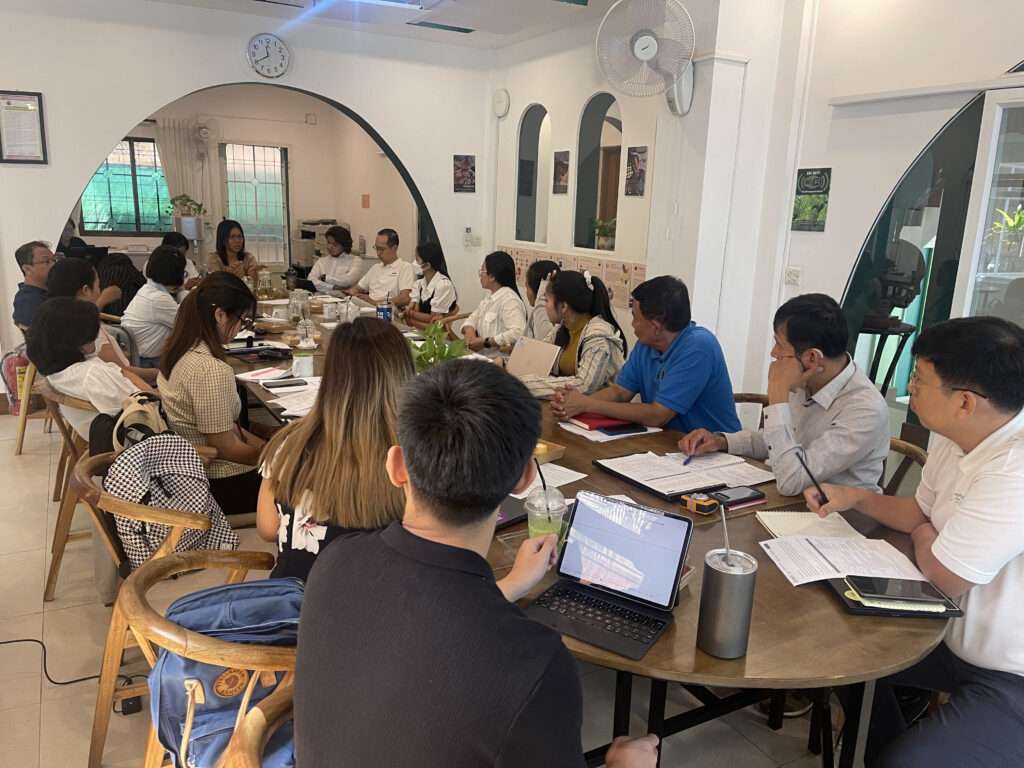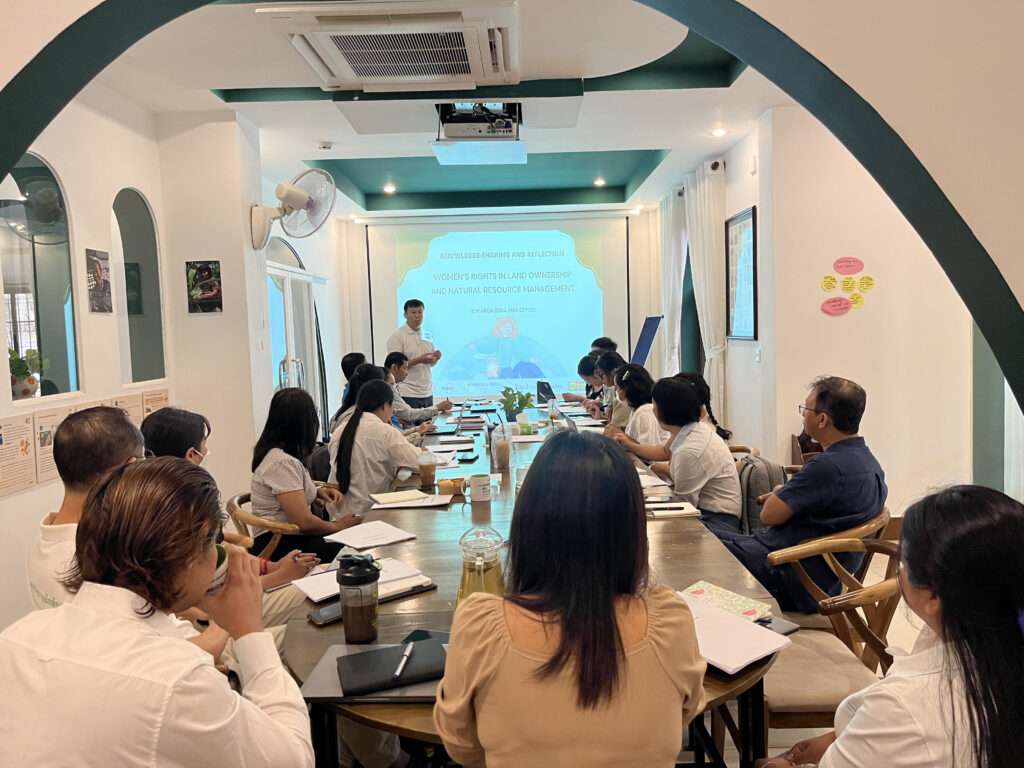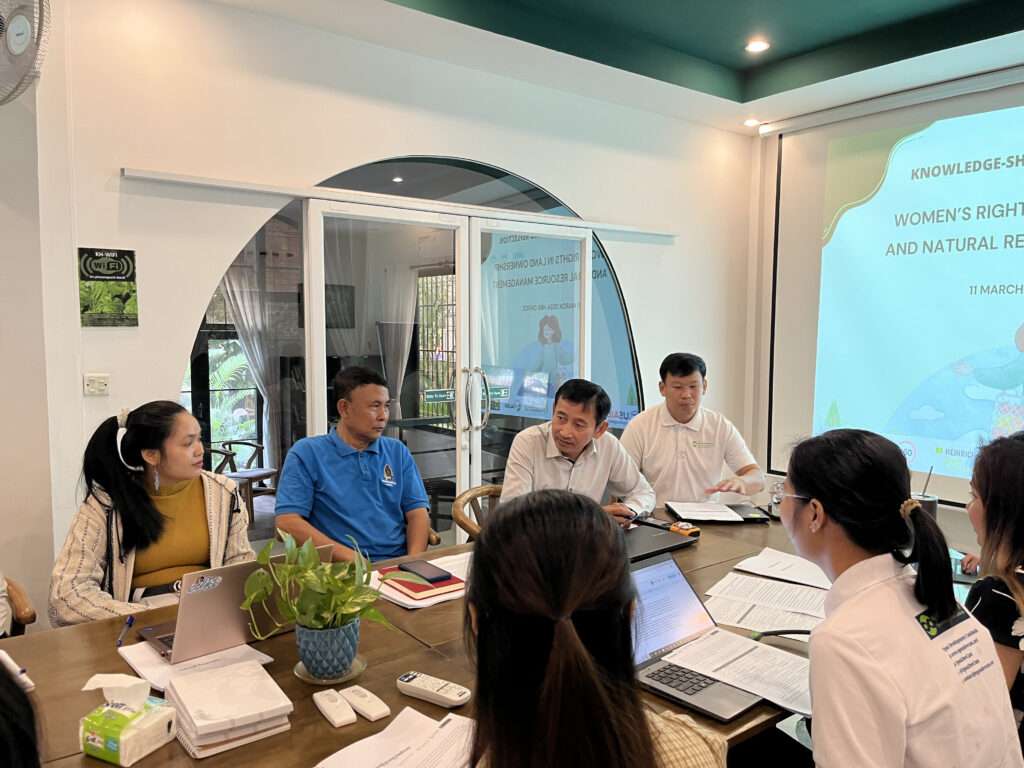Empowering women’s rights in land ownership and natural resource management: Insights from a knowledge-sharing event
On 11 March 2024, Open Development Cambodia Organization (ODC) in collaboration with Gender and Development for Cambodia (GADC) with funding from the United States Agency for International Development (USAID) through Family Health International – Civil Society Support Activity (FHI360-CSS), Advancing Land-based Investment Governance (ALIGN), and Landesa hosted an important discussion on “Women’s rights in land ownership and natural resource management (NRM)” at the Heinrich Boell Stiftung (HBS) Office in Phnom Penh with 22 enthusiastic participants (15 females) from various organizations.
“Why was this event so significant?” It aimed to foster an inclusive dialogue about gender equality and women’s participation in Cambodian land and natural resource governance. Just a month earlier, on 01 February 2024, ODC received an important letter from the Ministry of Land Management, Urban Planning, and Construction (MLMUPC) regarding the draft land law. This encouraged a series of dialogues with various stakeholders to review the draft and gather inputs. The goal of this discussion was not to gather inputs for the draft land law, but rather to share experiences and knowledge about women’s challenges in land and natural resource management.
ODC opened the event with a keynote speech emphasizing the commitment to gender equality in land ownership and NRM. ODC thanked all participants and highlighted the importance of open dialogue. The goal was to foster an environment in which everyone felt encouraged to freely share their ideas, resulting in a comprehensive post-discussion report.
The discussions explored Cambodia’s legal landscape regarding women’s land rights. The Cambodian Constitution, particularly Articles 31 and 45, expressly guarantees women’s rights and prohibits discrimination against them. Cambodia’s commitment to international human rights instruments, such as the Convention on the Elimination of All Forms of Discrimination Against Women (CEDAW), strengthens these rights. Global frameworks such as the Sustainable Development Goals (SDGs) and regional initiatives such as the ASEAN Gender Mainstreaming Strategic Framework both promote gender equality in land rights.
The participants’ insights served as the event’s core. One participant pointed out that the current legal framework does not explicitly reflect the LGBTQIA+ community, particularly in terms of inheritance and property rights from same-sex partners. This gap highlighted the importance of comprehensive legal reforms that recognize different family structures and ensure equitable property rights.
Another significant issue raised was the effective implementation of international treaties and agreements in Cambodia’s complex legal environment. Despite having approved numerous human rights treaties, effective enforcement remains a challenge. Participants emphasized the importance of incorporating these international provisions into applicable national laws to effectively address gender and land rights issues. Practical challenges for women in land ownership and NRM were also highlighted based on the participants’ experiences working with the communities, particularly women. One of the examples of indigenous women is that when they promote their rights, they frequently face obstruction from male community members. This highlights the need for targeted support mechanisms and capacity-building initiatives to empower women leaders in their communities. Other participants described that women’s desire for land ownership is frequently motivated by their roles as primary carers and their responsibility for household prosperity. However, cultural norms and traditional roles continue to be significant barriers to women’s active involvement in land governance. Alternative dispute resolution (ADR) mechanisms were identified as a useful tool for resolving land conflicts. ADR provides a non-adversarial and cost-effective approach to dispute resolution, which is especially beneficial to marginalized communities. However, women’s representation in these mechanisms remains low, highlighting the need for more inclusive practices.
The knowledge-sharing event on women’s rights to land ownership and NRM demonstrated the power of collective commitment and collaboration. It brought diverse voices together to address complex issues, laying the groundwork for future efforts to create a more equitable and sustainable future for all Cambodians, particularly women. As we move forward, we must continue to foster inclusive dialogue, promote comprehensive legal reforms, and implement targeted capacity-building initiatives. By doing so, Cambodia can take significant steps towards recognizing, respecting, and protecting women’s rights in land ownership and natural resource management.




